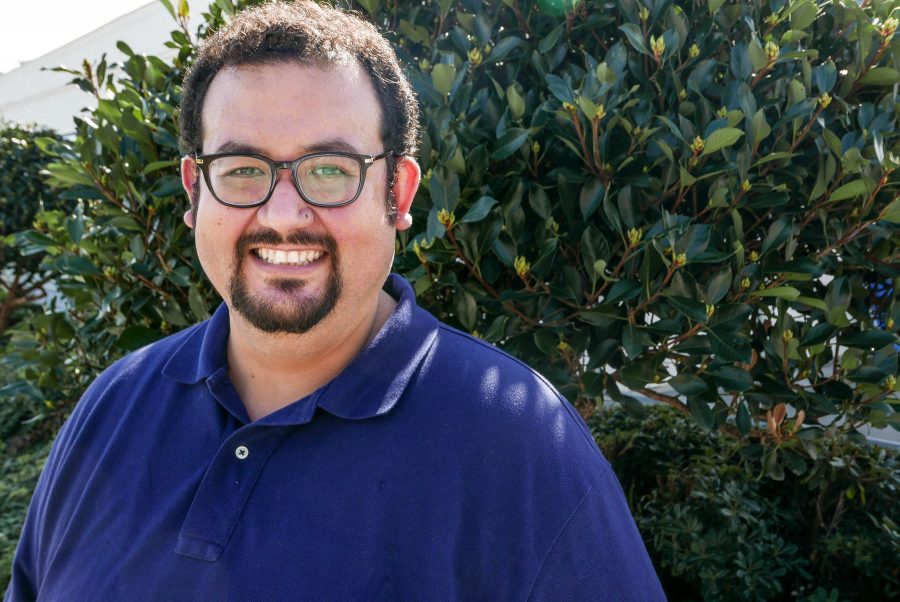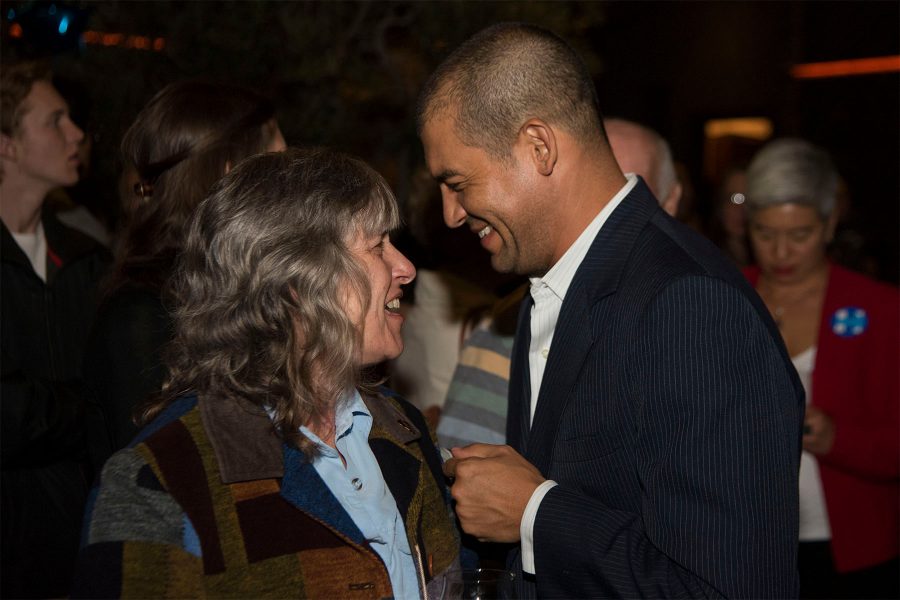The corridor windows at Santa Barbara Cottage Hospital frame the city’s scenic mountains as the sun reflects on the lobby’s marble floor, but the surroundings are simply normal to City College Instructor David Martinez.
Martinez, the first male instructor at City College’s nursing program, is willing, yet sheepish. He grins and blushes while one of his colleagues says, “the paparazzi are here!” as she jokingly reaches toward Martinez’s collar, pretending to straighten it. As his co-workers pass, eyeing the camera with puzzled expressions, Martinez explains: “I’m the first male instructor in the program. So it’s a big hoopla.”
Martinez, who attended Santa Barbara City College and completed its nursing program, has returned to teach.
“When I went through the program, my goal was to become an educator,” says Martinez. “In my mind’s eye I had always thought to myself, ‘Eventually I’ll get to City College.'”
And he finally reached that goal, but not easily. Martinez worked as a nurse at Cottage Hospital after finishing the nursing program at City College, and went on to attain his Bachelor’s degree and his Masters at Cottage Hospital. He then began working for City College in the clinical area through Cottage.
Now an instructor at City College, Martinez continues to work at Cottage as a Masters-prepared nurse, teaching students in the clinical area of the nursing program.
“The clinical rotation for me is fun because I’ve been a nurse for 30 years,” says Martinez. “It’s something I just know like the back of my hand.” Instructing, on the other hand, is new territory. “It’s so hard to teach,” Martinez states.
One of Martinez’s former instructors, Evan McCabe, who is currently a professor in the nursing program at City College and also teaches clinical at Cottage Hospital, thinks it is “fabulous” that Martinez is back. “He’s very worldly,” says McCabe.
McCabe also thinks that Martinez will make an “excellent role-model” for the male nursing students.
Though nursing used to be a female-dominated field, it is clear that with Martinez’s arrival, the path to becoming a nurse is open to anyone. “The gender bias just kind of goes over your head,” states Martinez, who says the most typical stereotype he faces is when patients assume he’s the doctor. Now, however, Martinez says, “there are no boundaries.”
Sheri Shields, director of the Associate Degree in Nursing Program at City College, agrees – even though Shields says only about 10 percent of the nursing students are male.
“You’re seeing more women engineers…and more males in nursing that you didn’t see 20 years ago,” says Shields. “Society is evolving and the role of the nurse is changing.”
Of all the roles of a nurse, Martinez says “the caring component” is his favorite.
“I really enjoy having a moment where I can sit and talk with the patient,” said Martinez. “Going home at the end of the day and saying, ‘Gosh, I really feel like I did something.’ It’s a huge part of it.”
Martinez states that his mother was sick when he was younger, and he took care of her. “I think that was kind of a basis,” says Martinez, referring to why he became a nurse.
And, despite being new to teaching, Martinez’s students have nothing but compliments to dish out. He’s “the best instructor,” says Janice Roux, who is in the Registered Nursing Program at City College
But the affection isn’t one-sided. “These kids are really smart,” said Martinez referring to his students. “They’re really bright.”
Martinez’s great rapport with his students is not overlooked. “Anytime you can relate to a student I think you’re going to be able to help that student,” said Shields. “David is passionate about nursing. And that’s what we need.”








